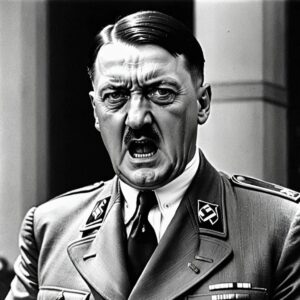1943 marked a defining moment in World War II with the conclusion of the Battle of Stalingrad. This brutal, months-long siege ended in a decisive Soviet victory, shattering the myth of Nazi invincibility and turning the tide of the war in favor of the Allies. The battle, which began in August 1942, saw relentless urban combat, starvation, and the harsh Russian winter take a devastating toll on German forces. Hitler had insisted on taking the city at all costs, believing its capture would break Soviet morale and secure a vital position on the Eastern Front. However, Soviet resistance, led by General Zhukov and reinforced by the brutal winter, trapped the German 6th Army, cutting off their supplies and forcing their eventual surrender on February 2, 1943.
The impact of Stalingrad was immense. Over two million soldiers and civilians perished in one of the deadliest battles in history. The once-mighty Wehrmacht suffered catastrophic losses, both in manpower and morale, weakening its ability to mount further offensives in the East. Meanwhile, the Soviets gained not only a strategic victory but also a newfound confidence that would propel them toward Berlin in the years to come. Stalingrad became a symbol of Soviet resilience and sacrifice, cementing its place in history as the moment when Nazi Germany’s downfall truly began.
The psychological impact of the battle was just as significant as its military consequences. Hitler’s aura of invincibility crumbled, causing rifts within the German command. Meanwhile, Stalin’s confidence in his military leadership grew, leading to more aggressive Soviet offensives. The Western Allies also saw this victory as proof that the Soviet Union could hold its own, paving the way for greater cooperation in the eventual defeat of Nazi Germany.
Eighty years later, the Battle of Stalingrad remains a defining moment of World War II, a testament to the resilience of those who fought and a stark reminder of the horrors of total war. The ruins of Stalingrad, now Volgograd, still bear the scars of the conflict, ensuring that this pivotal moment in history is never forgotten.

